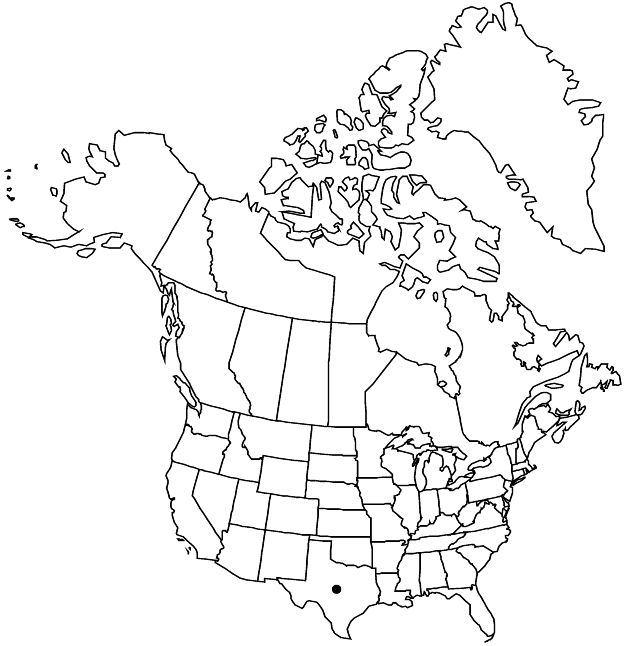Difference between revisions of "Euphorbia austrotexana var. carrii"
J. Bot. Res. Inst. Texas 7: 636, fig. 2[row 3, center]. 2013.
EndemicConservation concern
Treatment appears in FNA Volume 12. Treatment on page 299.
FNA>Volume Importer |
FNA>Volume Importer |
||
| Line 53: | Line 53: | ||
|publication year=2013 | |publication year=2013 | ||
|special status=Endemic;Conservation concern | |special status=Endemic;Conservation concern | ||
| − | |source xml=https://jpend@bitbucket.org/aafc-mbb/fna-data-curation.git/src/ | + | |source xml=https://jpend@bitbucket.org/aafc-mbb/fna-data-curation.git/src/f50eec43f223ca0e34566be0b046453a0960e173/coarse_grained_fna_xml/V12/V12_992.xml |
|genus=Euphorbia | |genus=Euphorbia | ||
|subgenus=Euphorbia subg. Esula | |subgenus=Euphorbia subg. Esula | ||
Revision as of 19:57, 16 December 2019
Stems 6–13 cm. Leaves: blade linear to slightly lanceolate, apex acute. Dichasial bracts broadly ovate-lanceolate, base rounded. Seeds 1.4–1.5 × 1–1.1 mm, surface with irregular and not obviously concave depressions.
Phenology: Flowering and fruiting spring.
Habitat: Sandy soils.
Elevation: 0–200.
Discussion
Variety carrii is restricted to Jim Hogg and Kenedy counties, Texas; M. H. Mayfield (2013) indicated that populations are confined to the South Texas Sand Sheet and apparently occur in the deepest sand areas of the region. B. L. Turner (2011) mistook collections of this taxon for the introduced, Old World E. exigua. The two species are not closely related and can be readily distinguished based on seed morphology.
Selected References
None.
Lower Taxa
None.
